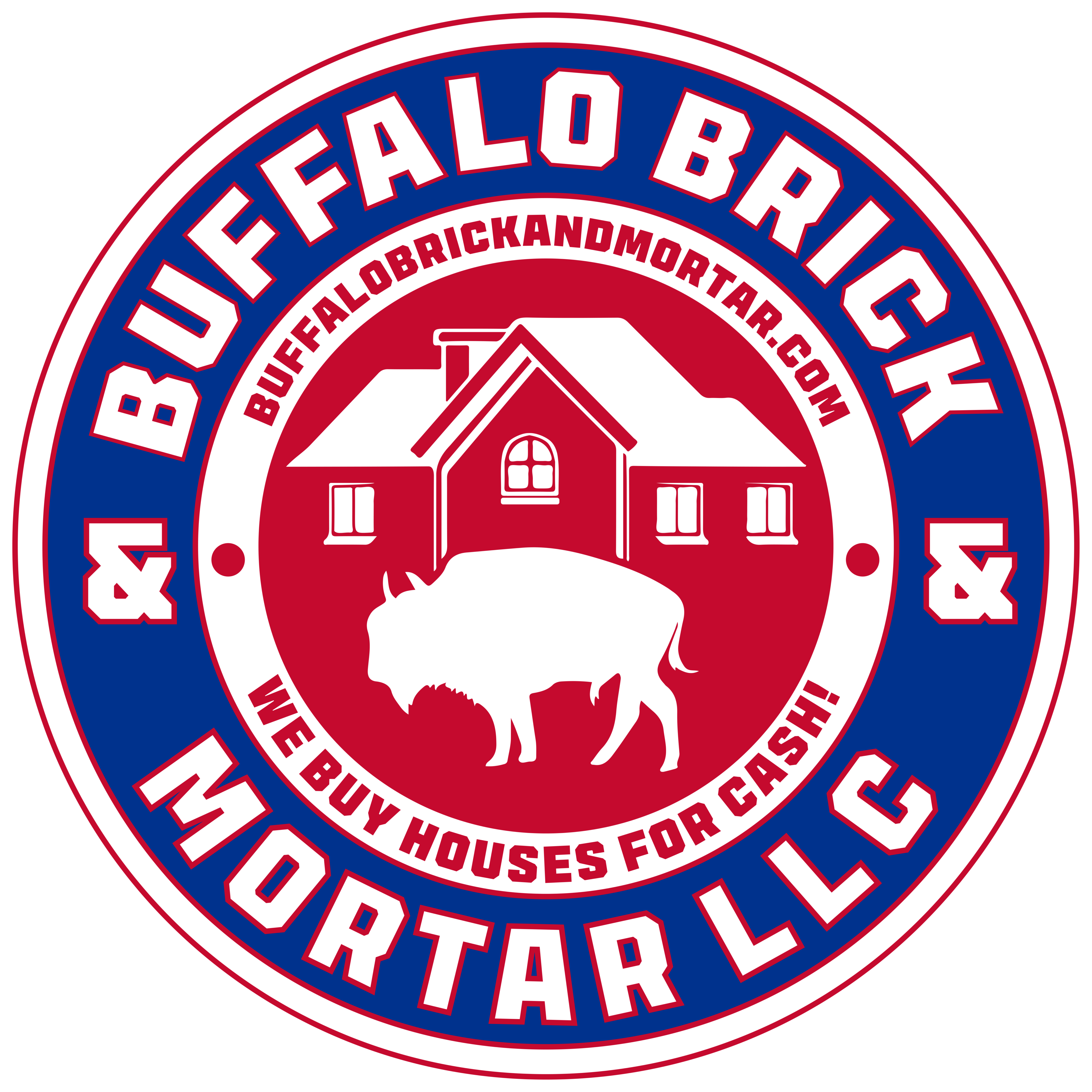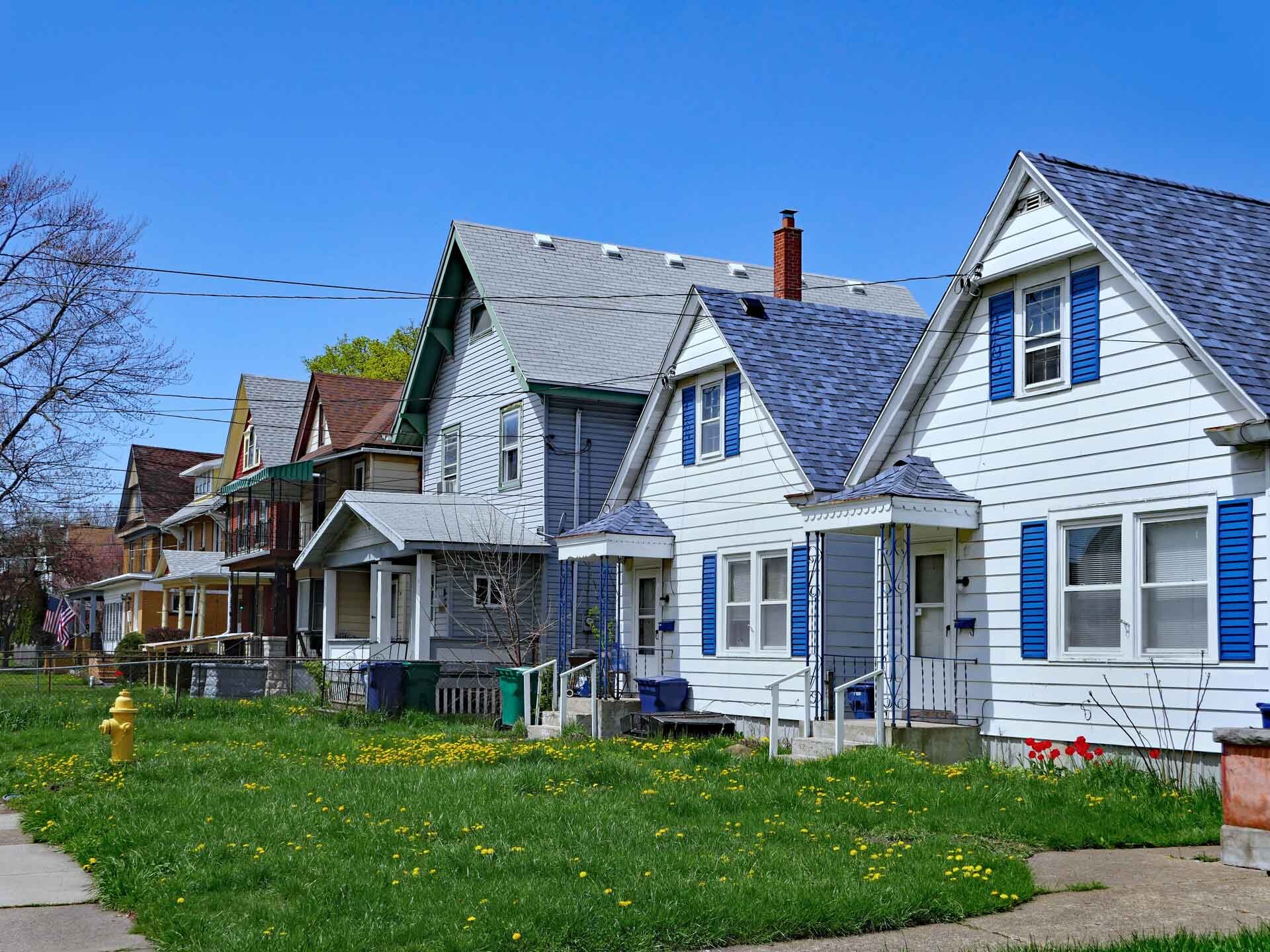Foreclosure occurs when a homeowner is unable to make their mortgage payments on time and has no way to catch up on the missed payments. Because a mortgage is a legal agreement between you and your lender, once you’ve defaulted on the loan, the lender can auction off the property to cover any outstanding debts, leaving you homeless and with terrible credit. Facing foreclosure can be overwhelming, but you may still have options to sell your home and protect your financial future. Whether you’re in pre-foreclosure or your lender has already initiated proceedings, selling your home could help you avoid further credit damage and financial strain. Our team is here to guide you through the process and help you make the best decision for your situation.
No one wants to receive a notice of foreclosure and yet, in a nationwide study, nearly 1 million Americans were afraid of losing their homes (U.S. Census Bureau Household Pulse Survey, fielded from July 27 to Aug. 8, 2022). Foreclosure can occur from a number of reasons, including:
- Job loss and loss of income
- Divorce or death of a spouse or partner
- Mounting debt, including medical and credit cards
- Moving without being able to sell the home
- Natural disaster
Buffalo Brick & Mortar LLC is a local company operating in NY that has built their business by buying distressed houses and properties in the area for cash. They promise competitive cash offers without the hassle of dealing with real estate agents, title companies, traditional bank financing, and more!
What is Foreclosure?
Let’s say you or your spouse recently lost your job. You still have the same bills to pay but unfortunately you don’t have the money to cover your expenses, including your mortgage payment. What happens now? Even if you find another job the amount of debt you’ve accrued during that time might be too large for you to pay off in a reasonable amount of time. When this happens, the bank starts the process of foreclosure. Foreclosure is the legal process that occurs when a homeowner falls behind on mortgage payments, and the lender takes action to repossess the property. There are typically several stages of foreclosure, and depending on where you are in the process, selling your home may still be a viable solution.
How Long Do You Have To Get Out of Your House After Foreclosure?
The steps for foreclosure in most states are missed payments, public notice, foreclosure, auction, and eviction, but the amount of time for each step varies based on state. You could have anywhere from 120 days to nine months before the bank can foreclose using either a judicial or non-judicial foreclosure. During this time, your lender will reach out to you by phone, mail, and email to let you know about the process.
n You Sell a Home in Foreclosure?
Yes, in many cases, you can sell your home even if it’s in foreclosure. However, the process differs from a traditional home sale because time constraints and lender involvement must be considered. Here’s what you need to know:
- Pre-Foreclosure Sales – If you’ve missed a few payments but the bank hasn’t scheduled an auction yet, you may still have time to sell your home traditionally and pay off the outstanding mortgage balance.
- Short Sales – If your home is worth less than what you owe, your lender may approve a short sale, allowing you to sell for less than the mortgage balance and avoid foreclosure.
- Selling Before Auction – If the home is already in foreclosure but hasn’t been sold at auction yet, there’s still an opportunity to find a buyer and work with your lender to close the sale.
The Different Types of Foreclosure
There are two different types of foreclosure you may experience: nonjudicial foreclosure or judicial foreclosure.
What Is Non-Judicial Foreclosure?
A non-judicial foreclosure is the fastest and cheapest way for a lender to foreclose on your NY property. It does not require taking you, the homeowner, to court and can be completed according to state statutes. In the case of non-judicial foreclosure, your lender repossesses your home to sell it and recover whatever debt is owed using what’s called a “power-of-sale” clause in the deed of trust. Not every state allows for this option but, if yours does, the lender will generally choose it to avoid any court costs.
What Is Judicial Foreclosure?
In states that require judicial foreclosure, your lender must file a lawsuit asking the court to issue an order to allow for the sale of the home. The lender must provide you with this letter. Whether you agree or not, you must respond to the letter or the lender will automatically win the case and be allowed to put your home up for a foreclosure sale. When the house is sold, you are still required to pay the difference between what you still owe on the mortgage and the amount the house sold for.
Auctions are not like regular home sales and generally the house is not sold for market value. This means that even if your house is in great shape and worth a lot more than what is left on your mortgage, you may still find yourself owing tens of thousands (if not hundreds of thousands) of dollars for a house you no longer own! This is called a deficiency judgment. It’s an expensive and long process for lenders to take to try and recoup their debt, which is why most prefer a non-judicial foreclosure.
Get an offer today, sell in a matter of days.
FIll out the Form below and rep will reach out to you shortly
How to Sell Your House Before Foreclosure in NY
Let’s break down a few ways you can sell your house, depending on your time frame and situation:

Hire A Real Estate Agent
The first step most Americans think of when selling a house or property is to reach out to a local real estate agent. But there are pros and cons to this option when you are in a difficult situation such as foreclosure. Sure, a good real estate agent can list your property on the MLS and help you get it ready for open houses and daily showings, but they do all of this work so that at the end of the closing process a large chunk of your money from the sale of your house goes to them in the form of the agent’s commission. When you’re already suffering from a mountain of debt and need every penny to pay back your lender, a commission of 3% to 6% of your final sale price may be too hefty an amount to give up.
Plus, there’s the additional fear of not knowing when your house will actually close. Realtors may promise a lot, but at the end of the day you’ll still need to find the right buyer and wait 30+ days for a traditional close. For some homeowners who are facing auction and eviction, even waiting one month might be too long.

Short Sale
If you owe more on your house than it’s worth, your realtor may require what is called a short sale. A short sale is necessary when you owe more on your house than the property is currently worth. For example: if you owe $200,000 on your house but in the current market it’s only worth $150,000, you must deal with a short sale. Though it may seem like a good option, it won’t be fast or easy.
To start off, you’ll first need to get your lender’s approval. To qualify for a short sale, you must prove financial hardship using documentation such as W-2s, medical bills, etc. For a situation such as loss of income, the lender will require that you prove that the loss of income is long-term and unlikely to turn around in your favor. If the lender approves the short sale, you will need to find a real estate agent and attorney that specialize in short sales, and they will still charge you the same amount as they would if you were selling your house with a traditional home sale.
If your foreclosure hasn’t dragged on for too long and you’ve maintained contact with your lender, it’s likely that they will approve the short sale. This allows them to avoid the time and expense of trying to foreclose on your property, while still recouping some of the loss from the missed mortgage payments. But for the regular American homeowner, the short sale will follow them for the next 5 to 7 years.
You may have sold the house and been able to pay off some of your debt, but the short sale can damage your credit the same as if you had declared bankruptcy. The credit unions include the delinquency on your mortgage(s) to your lenders and the short sale on their records, making it nearly impossible for previous homeowners to get a credit card, buy a car, or move into a new house or property for the same amount of time as a bankruptcy.

Sell Your House AS-IS to A Cash Buyer
If you’re under a strict time restraint to sell your house before a foreclosure progresses to auction and eviction, you do have options! You can try to sell your property with a real estate agent, work with your lender to complete a short sale, or – best of all – turn to a trusted and reliable cash investor to help you with your situation.
Some of the benefits of selling to a direct cash investor include:
- A quick and pain-free closing process.
- Avoid paying any commissions or fees.
- You won’t have to worry about marketing your house and waiting for a buyer.
- No need to clean-up or complete any repairs!
When you sell your home as-is to a direct cash buyer, you not only can avoid losing your home to an auction, but you also may be able to sell the property for enough money to get out of financial debt. Moving on with your life without the burden of a monthly mortgage payment and debt hanging over your head is one of the best gifts you can give yourself!
Steps to Selling a Home in Foreclosure
1. Understand Your Lender’s Timeline
The foreclosure process varies by state and lender. Understanding deadlines and key milestones will help you act quickly to sell before the property is repossessed.
2. Determine the Property’s Value
A professional market analysis or appraisal will help you understand your home’s worth. If the value is higher than your mortgage balance, selling may allow you to pay off your debt and keep any remaining equity.
3. Communicate with Your Lender
Lenders may be willing to work with you if they know you’re actively trying to sell the property. Keeping open lines of communication can prevent unnecessary legal actions and may allow for extensions or alternative solutions.
4. List the Property for Sale
A real estate professional experienced in foreclosure sales can help you market your home quickly. Depending on your timeline, you might choose to sell through a traditional listing, a cash sale, or an investor purchase.
5. Negotiate Offers and Close the Sale
Once you receive an offer, it’s essential to act quickly. Your lender may need to approve the sale, particularly if the offer is less than the remaining mortgage balance (short sale). Closing efficiently can help you avoid foreclosure and minimize financial consequences.
Avoiding Common Pitfalls
When selling a home in foreclosure, there are certain mistakes that can delay or complicate the process. Here’s what to avoid:
- Waiting Too Long – The sooner you act, the more options you have. Waiting too long could lead to losing the ability to sell before foreclosure is finalized.
- Ignoring Lender Communication – Staying in contact with your lender can help prevent further legal action and allow for negotiation.
- Overpricing the Home – Pricing your home too high can scare off buyers. A real estate agent can help you set a competitive price to sell quickly.
- Failing to Consider a Short Sale – If your home is worth less than your mortgage balance, a short sale could be a viable option. Failing to explore this route may lead to foreclosure.
Alternatives to Selling
If selling your home isn’t the best option for you, there are other ways to avoid foreclosure, such as:
- Loan Modification – Some lenders will adjust your loan terms to make payments more manageable.
- Forbearance Agreement – Temporarily pausing or reducing payments may help you catch up on missed payments.
- Deed in Lieu of Foreclosure – You may be able to transfer ownership of the property to your lender to avoid a foreclosure on your credit record.
- Refinancing – If you qualify, refinancing your mortgage could help you secure lower payments and prevent foreclosure.
Can You Stop Foreclosure Once it Starts?
Pay Off Your Loan & Fees
You’ve found yourself in a difficult situation. Your debt is adding up while your finances remain the same. It’s time to get serious and look at ways to pay down your debt quickly. Do you have any items you can liquidate? Maybe you have friends or family that can gift you money or provide you with a loan until you get back on track. If you are serious about paying down your debt and stopping foreclosure, you may need a financial professional to help you restructure your budget. Use one of these solutions or combine them all to help climb that avalanche of debt and get back to living a life free of stress.
Declare Bankruptcy
As a last resort, bankruptcy may help you stop the foreclosure of your home but it comes with a high cost. The bankruptcy process is complex and will require a lawyer that specializes in bankruptcy law. If the court approves your petition, you will be entered into a government-approved credit counseling program and the bankruptcy will be reported on your credit report for 7 years. A bankruptcy affects all areas of your life, including when you try to purchase a car, apply for a credit card or bank account, and can disqualify you from future rentals.
The Homeowner Affordability and Stability Plan (HASP)
If your debt is higher than your income, you may be eligible for the Homeowner Affordability & Stability Plan (HASP). HASP is a loan modification program targeted at borrowers who are at risk of foreclosure due to insufficient income. This government program was designed to help homeowners in the United States restructure their monthly payments to fit a limited budget. Apply for the program here to see if you qualify.
Related Articles
5 Ways the Foreclosure of Your Buffalo House Will Impact You in the Future
What Homeowners in Buffalo Can Expect During the Foreclosure Process
The Difference Between Pre-Foreclosure and Foreclosure for Homeowners in Buffalo
How to Sell Your House During Bankruptcy in Buffalo
Stopping the Foreclosure Process: A Guide for Buffalo Homeowners
What Rising Foreclosure Rates Mean for Home Buyers and Sellers in Buffalo
Avoiding Foreclosure: How Buffalo Direct Property Buyers Can Help You Keep Your Credit Score Intact
How to Sell Your House in Buffalo if You Owe More Than It’s Worth
4 Things to do if You Are Upside-Down on Your Mortgage in Buffalo
Traditional Sales vs. Short Sales And Foreclosures in Buffalo
Sell Your House Fast to a Cash Buyer
Are you ready to sell your house but don’t have the time to wait 30+ days for a traditional close? Does a short sale seem like a fast way to ruin your credit? Prefer to pay off all your debt at once and get the bank off your back fast? A direct home buyer and cash investor might be exactly the solution you’ve been searching for! When you work with a trusted and reliable investor with a great reputation in your area, you’ll find a helpful company with cash on hand that is ready to purchase your home from your as-is. With a cash buyer, you can skip the lengthy process of foreclosure, eviction, and auction within a matter of days, and save your credit as well!
You may not get full market value for your house or property when you sell to a trusted cash investor, but the timeliness of a fast closing, and the lack of fees, required inspections, and commissions often balance this out at close. Best of all, because an investor can close fast, you can often close before the bank is able to auction off your property! This means you can sell the property for the amount that benefits you versus the pennies to the dollar price the bank will often try to sell your house for just to get it off the books.
We Buy Houses in Foreclosure & Pre-foreclosure–
Get Your Offer Today!
Does the idea of finally walking away from a property without the storm cloud of foreclosure hanging over your head? Contact a real professional at Buffalo Brick & Mortar LLC to find out more and get a fair cash offer for your property today.

